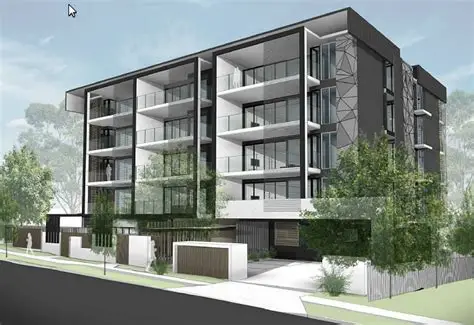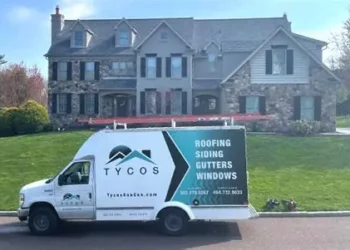Property management for multi-unit buildings entails overseeing the operations and maintenance of properties with multiple units. This dynamic field requires a keen eye for detail, strong communication skills, and a deep understanding of the diverse needs of tenants. As we delve into the intricacies of this topic, you'll gain valuable insights into the key aspects that make property management for multi-unit buildings both challenging and rewarding.
Overview of Property Management for Multi-Unit Buildings
Property management for multi-unit buildings involves the oversight and operation of residential or commercial properties with multiple units. This includes apartment complexes, condominiums, townhouses, and other similar buildings. The property manager is responsible for ensuring the property's maintenance, financial stability, tenant satisfaction, and overall well-being of the residents.Effective property management in multi-unit buildings is crucial for maintaining the value of the property, attracting and retaining tenants, and ensuring a safe and comfortable living environment.
Property managers play a key role in overseeing day-to-day operations, addressing tenant concerns, coordinating repairs and maintenance, collecting rent, and enforcing lease agreements.
Key Responsibilities of Property Managers for Multi-Unit Buildings
- Property Maintenance: Ensuring the property is well-maintained, addressing repairs promptly, and coordinating regular upkeep tasks.
- Tenant Relations: Communicating with tenants, addressing their concerns, handling complaints, and ensuring a positive living experience.
- Financial Management: Managing the property's budget, collecting rent, paying bills, and maintaining financial records.
- Lease Management: Enforcing lease agreements, handling lease renewals, and managing tenant move-ins and move-outs.
- Legal Compliance: Ensuring that the property complies with local laws, regulations, and building codes.
Tenant Relations and Communication
Maintaining positive tenant relations in multi-unit buildings is crucial for a harmonious living environment and overall tenant satisfaction. Effective communication methods between property managers and tenants play a significant role in achieving this goal. Handling tenant complaints and disputes in a professional manner is essential to ensure a peaceful and productive living environment for all residents.
Strategies for Maintaining Positive Tenant Relations
- Regularly communicate with tenants through newsletters, emails, or meetings to keep them informed about any updates or changes within the property.
- Address tenant concerns promptly and effectively to show that their feedback is valued and taken seriously.
- Organize community events or activities to foster a sense of belonging and create a positive atmosphere within the building.
- Ensure that common areas are well-maintained and clean to enhance the overall living experience for tenants.
Effective Communication Methods
- Utilize multiple communication channels such as email, phone calls, text messages, and online portals to reach out to tenants effectively.
- Establish clear communication protocols and response times to ensure that tenant inquiries and concerns are addressed in a timely manner.
- Provide regular updates on maintenance schedules, building improvements, and any other relevant information to keep tenants informed.
- Encourage open communication by creating a welcoming environment where tenants feel comfortable sharing their feedback and suggestions.
Handling Tenant Complaints and Disputes
- Listen actively to tenant complaints and concerns without interrupting, showing empathy and understanding their perspective.
- Investigate the issue thoroughly and communicate with the tenant to find a mutually acceptable solution to resolve the complaint or dispute.
- Document all interactions and resolutions to keep a record of the issue and ensure accountability from both parties.
- Seek mediation or legal guidance if the complaint or dispute escalates and cannot be resolved amicably between the parties involved.
Maintenance and Repairs
When managing multi-unit buildings, property managers play a crucial role in overseeing maintenance and repairs to ensure the property is well-maintained and safe for tenants. Effective maintenance practices can help prevent costly repairs and improve tenant satisfaction.
Maintenance Tasks in Multi-Unit Buildings
- Regular cleaning and upkeep of common areas such as hallways, lobbies, and parking lots.
- Ensuring proper functioning of heating, ventilation, and air conditioning systems.
- Inspecting and maintaining plumbing fixtures, electrical systems, and appliances in each unit.
- Managing landscaping and outdoor spaces to enhance the curb appeal of the property.
Scheduling and Prioritizing Repairs
- Property managers can create a maintenance schedule to keep track of recurring tasks and prioritize urgent repairs.
- Respond promptly to maintenance requests from tenants to address issues in a timely manner.
- Work with reliable contractors and vendors to ensure quality repairs are done efficiently.
Importance of Regular Inspections and Preventative Maintenance
Regular inspections help property managers identify potential issues before they escalate into costly repairs. Preventative maintenance can extend the lifespan of building systems and equipment, saving money in the long run. By staying proactive and addressing maintenance needs promptly, property managers can create a safe and comfortable living environment for tenants.
Financial Management
Property managers for multi-unit buildings have significant financial responsibilities that require careful planning and management. From creating and managing budgets to ensuring timely rent collection, financial management is crucial for the overall success of the property.
Creating and Managing Budgets
- Property managers need to assess the maintenance needs of the building and allocate appropriate funds for repairs and upgrades.
- It is essential to create a detailed budget that includes expenses such as utilities, insurance, property taxes, and any other recurring costs.
- Regularly review and adjust the budget to account for unexpected expenses or changes in the market.
Strategies for Rent Collection
- Implement a clear and consistent rent collection policy to ensure on-time payments from tenants.
- Send out reminders before the due date and follow up promptly on any late payments.
- Consider offering incentives for early payments or setting up automatic payment options for tenants.
Handling Late Payments
- Establish a protocol for dealing with late payments, including late fees and potential eviction procedures.
- Communicate openly with tenants about the consequences of late payments and work with them to find solutions.
- Document all interactions regarding late payments to maintain clear records for future reference.
Financial Reporting
- Generate regular financial reports to track income, expenses, and overall financial performance of the property.
- Provide detailed breakdowns of the budget and actual spending to identify areas for improvement or cost-saving opportunities.
- Utilize accounting software or professional services to ensure accurate and transparent financial reporting.
Legal Compliance and Risk Management
Property managers for multi-unit buildings must adhere to various legal requirements to ensure compliance and mitigate risks. This includes addressing liability issues and safety concerns, as well as incorporating crucial lease agreement clauses specific to multi-unit properties.
Legal Requirements for Property Managers
- Ensuring compliance with local, state, and federal housing laws and regulations.
- Maintaining accurate and up-to-date records of tenant information, leases, and maintenance activities.
- Implementing fair housing practices and policies to prevent discrimination.
- Conducting regular property inspections to identify and address any potential safety hazards.
Mitigating Risks and Liability Issues
- Obtaining comprehensive insurance coverage for the property, including liability insurance.
- Implementing safety protocols and emergency procedures for tenants and staff.
- Promptly addressing maintenance and repair issues to prevent accidents or injuries.
- Establishing clear communication channels for tenants to report safety concerns or maintenance issues.
Crucial Lease Agreement Clauses
- Responsibility for maintenance and repairs of the unit and common areas.
- Prohibited activities or behavior that may disrupt other tenants or violate property rules.
- Terms for rent payment, late fees, and consequences for non-payment.
- Procedures for lease termination, including notice periods and conditions for early termination.
Community Engagement and Amenities
Property managers play a crucial role in fostering a sense of community in multi-unit buildings. By creating a welcoming and inclusive environment, they can help tenants feel connected and engaged with their neighbors.
Providing amenities and services is essential to enhance tenant satisfaction. These offerings can range from basic facilities like a fitness center or laundry room to more luxurious amenities such as a rooftop terrace or community garden. By catering to the diverse needs and preferences of tenants, property managers can improve overall tenant experience and retention.
Organizing Community Events and Activities
Organizing community events and activities is a great way to promote engagement and strengthen the sense of community within the building. By bringing tenants together for social gatherings, workshops, or fitness classes, property managers can create opportunities for residents to connect and interact with each other.
- Host a monthly potluck dinner where tenants can share homemade dishes and get to know their neighbors.
- Organize a community clean-up day to beautify the building's surroundings and foster a sense of pride among tenants.
- Set up a book exchange or lending library in the common area to encourage reading and community interaction.
- Plan seasonal events such as a summer BBQ, holiday party, or spring festival to celebrate with tenants and create lasting memories.
Summary
In conclusion, property management for multi-unit buildings is a multifaceted discipline that demands dedication, foresight, and a commitment to excellence. By prioritizing tenant relations, efficient maintenance practices, sound financial management, legal compliance, and community engagement, property managers can create thriving living environments for residents.
As you navigate the complexities of this field, remember that success lies in the ability to balance the diverse responsibilities inherent in managing multi-unit properties.
Key Questions Answered
What are the key responsibilities of property managers for multi-unit buildings?
Property managers for multi-unit buildings are tasked with overseeing maintenance, managing tenant relations, ensuring legal compliance, handling finances, and fostering community engagement.
How can property managers effectively handle tenant complaints and disputes?
Property managers should listen attentively to tenant concerns, address issues promptly, maintain open communication channels, and seek amicable resolutions to disagreements.
What strategies can property managers employ for rent collection and financial reporting?
Property managers can implement automated rent collection systems, set clear payment deadlines, send timely reminders for late payments, and maintain detailed financial records for accurate reporting.














